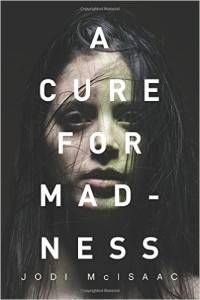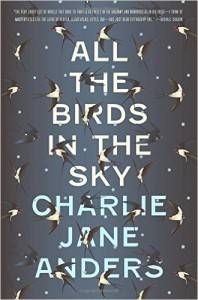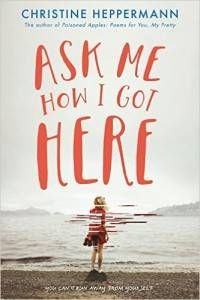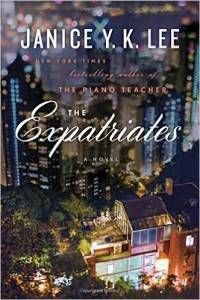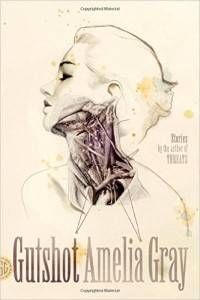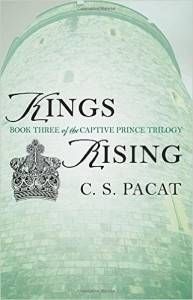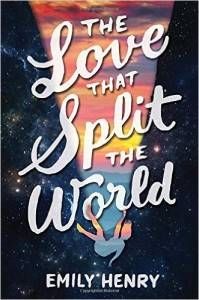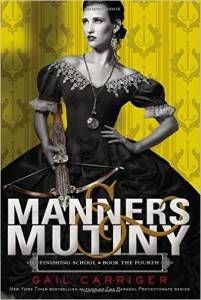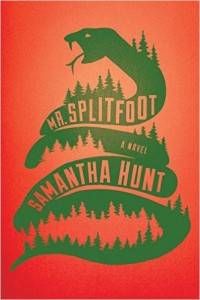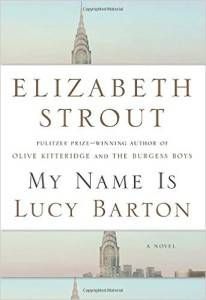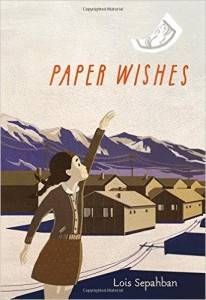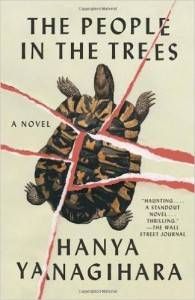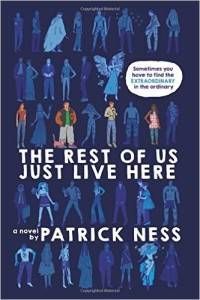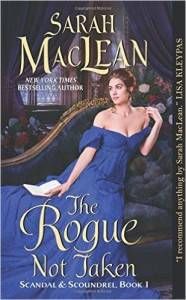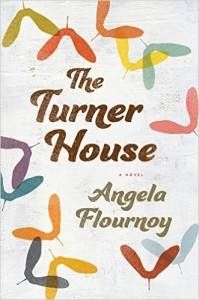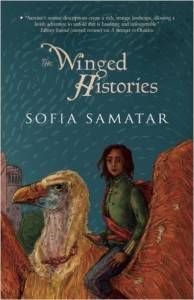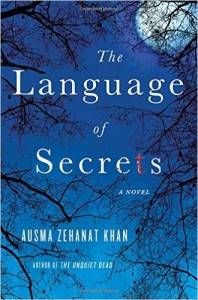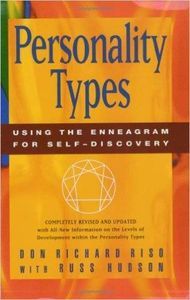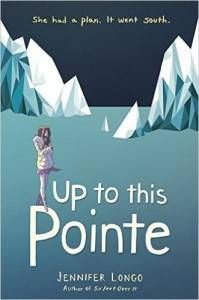A Cure for Madness by Jodi McIsaac (Thomas & Mercer) This book may as well have been stapled to my fingers, I could not put it down. Its spiky heroine who reluctantly travels home for a funeral, her troubled brother, a plague of full on crazy sweeping her a small town. Underneath the medical thrills there’s a real tenderness that worms its way under your ribs and into your heart. — Rachel Weber All the Birds in the Sky by Charlie Jane Anders (Tor Books, January 26) There are novels that come along and utterly change how you think about fiction. They challenge you, they charge you, they fire you deep into the shadowed spaces within yourself that you could only previously grasp. By the end, you simply feel entrenched, like you somehow exist deeper in this beautiful, insane world we inhabit, and can better understand the connections between everyone who lives on it. The last novel to do this to me was Among Others by Jo Walton, and I’m thrilled to say Anders’s novel All the Birds in the Sky has joined that shelf. An incredibly human tale about love, connection, pain, growing up, taking responsibility, and finding balance in a world writhing with upheaval, All the Birds in the Sky chronicles the journey of Laurence and Patricia as they meet as children and grow to adulthood. And while Laurence has an aptitude for super-science, and Patricia becomes one of the most powerful witches of her age, the true wonder is in seeing these two complicated, passionate, flawed people spark against each other in moments both large and small. With prose both succinct and strange, beautiful and slightly bizarre, Anders deals with all the big ideas you could possibly imagine with an enviable deftness, and never once neglects the chance to expand and complicate her characters. This is a beauty of a book, and personally, I think it will be a new classic for many years to come. It may already be my favorite book I’ve read this year and it’s January for goodness sake! Go read it. Let it change the way you think of fiction. Let it change you. –Marty Cahill Ask Me How I Got Here by Christine Heppermann (Greenwillow, May 3) A couple of years ago, I raved about Heppermann’s YA debut Poisoned Apples, which was a collection of feminist poems paired with feminist art. To say I was excited she had a YA novel in verse coming out would be an understatement, and I was far from disappointed with Ask Me. Addie attends a private religious school and she’s a cross country runner. It’s always been a big part of her life. Until it’s not. After sex with her boyfriend James, she finds herself pregnant. Here’s where the story shifts: this isn’t a story about the poor girl who got pregnant, had an abortion, and was left alone by him. Nope. She has an abortion and he sticks around. Her parents are supportive. It’s really not the end of the world. Though it is hard on Addie, and it’s hard on her in some pretty unexpected ways. This short novel dives deep into religion and into the ways women are made to bear pain and sin in different ways than men. Despite being sharp, it’s respectful of those who follow religion, and it casts a fascinating and sympathetic feminist eye to the Virgin Mary herself. The novel is ultimately about forgiveness and about choice and how in order to have choice, you need to forgive yourself for things you do — and do not — have control over. Heppermann’s writing is fluid, brave, and unabashedly feminist. This is a book readers who love Laurie Halse Anderson’s Speak will love, and it has many great parallels to Hilary T. Smith’s A Sense of the Infinite. — Kelly Jensen The Expatriates by Janice Y. K. Lee If you’re looking for a book with great characters and setting that is perfect for book club, I have a winner for you. The Expatriates centers around three American women who seem to have nothing in common aside from living in the same tiny social community in Hong Kong. Mercy has never seemed to get anything right in life. Hilary is so desperate for a child she’s “testing out” adopting a young boy in an orphanage. Margaret is dealing with the aftermath of a tragedy. I loved each of them for their flaws, honest representation of the messiness of life, and that they didn’t always think/feel/react the way I would have assumed. And if you’re an audiobook listener I really liked the narrator, Ann Marie Lee: while she changed her voice a bit for the male characters it wasn’t in a dramatic fashion (which I hate!) and her ability to convey each character’s emotions was always spot-on. — Jamie Canaves Gutshot by Amelia Gray (FSG) The stories in Gutshot are of amazing quality, dark and eerie, and all written with a terse prose that is a joy to read. My favorites are “Heart House,” “In The Moment” (wonderfully quirky), and “The Heart,” where a family finds a whale heart in their house and then casually begin cutting it down and removing it from the house. This is a metaphor, of course, for the mother that is missing from the family. The stories are all really deep, there’s a full novel’s worth in many of them but Amelia has sliced them down to the core. Many of them are dark, some even gruesome. It’s the first book I read this year and I think I will be hard-pressed to find a better one. If nothing else, it’s a masterclass in catchy first sentences. — Johann Thorsson Kings Rising: Book Three of the Captive Prince Trilogy by C. S. Pacat (Berkley, February 2, 2016) This was one of my most anticipated books of the year and it did not disappoint. Captive Prince is an epic fantasy trilogy with a central love story between two rival princes. In the first book, Prince Damon is betrayed and sold into anonymous slavery to Prince Laurent. The relationship between the brilliant schemer prince and his slave, a noble, honest warrior develops very slowly as their characters are revealed to be much more complex they at first seemed. The series is intelligent and beautifully written, with one of the longest, most deliciously painful buildups to sexual consummation I’ve ever read in a romance. Yet I think descriptions of the series as “erotic” are a little off base: it’s no more erotic than many het historical romance. I adore the series for the worldbuilding, political intrigue, clash of cultures, and exciting battle scenes, both large and small. And, most of all, the beautiful relationship between Laurent and Damen. I couldn’t have asked for a better finale. — Jessica Tripler The Love That Split the World by Emily Henry (Razorbill, January 26) Listen, marketing people. You cannot describe a book to me by saying it’s Friday Night Lights mashed up with The Time Traveler’s Wife. Seriously. You can’t. Cause then I have to stop absolutely everything I’m doing, sit down, and devour that book. Emily Henry’s debut is just that, an incredibly unique mashup of contemporary with sci-fi that weaves a stirring, heartwrenching love story that’s impossible to turn away from. It’s a story that touches on first love and identity, family ties and friendships, all while leaping through different worlds. A must read, and a shoe-in for one of my favorites of the year. — Eric Smith Manners & Mutiny by Gail Carriger (Little, Brown Books for Young Readers) This is the fourth and final book of Gail Carriger’s Finishing School series, and there was much squeeing. After the first three holding my attention but not being as much to write home about as the other two series in the same universe, I was overjoyed to have a compelling, enticing ending to the set. And now maybe I need to go read Soulless again… — Jessica Pryde Mr. Splitfoot by Samantha Hunt (Houghton Mifflin Harcourt) Ruth and Nat grow up in a group home run by a religious fanatic. Nat pretends to speak to the dead family members of the other kids in the home, or so he says, and before they can age out of the system, a mysterious con man named Mr. Bell takes their show on the road for those willing to pay. Flash forward a number of years, and Ruth, grown up and mute, insists her niece follow her on an uncertain trek across the state of New York. What are they running to or from? The multiple perspectives come together beautifully to reveal the haunting conclusion as Ruth’s past meets her present. — Andi Miller My Name is Lucy Barton by Elizabeth Strout THIS BOOK. It may have changed the fabric of my DNA. I imprinted on it. I have never read an Elizabeth Strout book before, and reading her was every bit as amazing as I had heard. In this book, Lucy Barton is in the hospital. She was there for minor surgery, but things are not healing up like they should, so she has to stay for a few more days. Her husband is busy at home watching their kids, so he asks Lucy’s mother to go and stay with her. They have not seen each other for many years, but her mother goes, and it is through their conversations and Lucy’s narration we learn about her childhood, which was one of abject poverty, as well as her present-day situation, and even parts of her future. This book made me cry like crazy! It’s so beautiful and unusual, not in a weird way, but in that I’ve never read writing quite like Strout’s before.It casts a powerful spell. — Liberty Hardy Paper Wishes by Lois Sepahban Ten-year-old Manami lived happily on Bainbridge Island with her parents, her grandfather, and her dog Yujiin. But in March 1942, her family is given orders to vacate the island and move to a relocation camp in Manzanar, California. Manami hides Yujiin in her coat, but an officer sees her dog and demands she give it up. She kicks and shouts and screams, but her dog is taken away from her anyway. This is the last time Manami speaks for nearly a year. Readers then follow Manami on her journey to the relocation camp. There we watch as she struggles to keep her mother’s garden alive, as she accepts paper and pencil from the teacher at the camp, and as she searches for Yujiin who she is convinced is somewhere in the camp with her. Author Lois Sepahban’s debut does a commendable job connecting readers to the history of Japanese relocation camps during World War II, but most of all, she honors the pain and loss of Japanese-Americans who lived during that time. A must read for middle grade readers and beyond. — Karina Glaser The People in the Trees by Hanya Yanagihara It will come as no surprise to fans of Yanagihara’s baroque and sprawling saga of trauma, A Little Life, that The People in the Trees is a gnarly read (for the record, I remain ambivalent about ALL but could not put it down for the life of me). For me, People in the Trees was both more disturbing and more compelling: its narrator, a Nobel Prize-winning scientist who’s writing his memoirs while serving out a sentence for molesting his adopted children (I don’t know, man, everybody has their themes), is one of the most perfectly crafted literary villains I have come across in a long time. Our protagonist is Dr. Norton Perina, a self-described iconoclast who stumbles upon a completely isolated—and apparently immortal—tribe on a virtually unknown Micronesian island called Ivu’ivu. It does not take long for us to realize that Dr. Perina is not just an unreliable narrator, but a startlingly despicable person (with a penchant for weirdly hilarious acerbic riffs on everything from heterosexual matrimony to women in science), but Yanagihara’s gift for addictive, beautiful prose makes this book just as riveting as A Little Life, and her uncanny ability to conjure up an entire society whole cloth is as impressive as her writing. (Fans of Ellen Ullman’s brilliant and deeply creepy By Blood will eat this one up with a spoon.) It feels a bit weird to describe a novel that’s basically a chipper account of genocide, animal abuse, science experiments on human beings, misogyny, pedophilia, and sexual assault as “totally rip-cracking,” but there you have it. — Sarah McCarry The Rest of Us Just Live Here by Patrick Ness (HarperTeen) A relentlessly clever novel whose cleverness never felt pushy and bothersome to me, there are so many narrative strands packed into this book, it’s unbelievable. There are narratives runniing solely in the chapter headings, narratives in the book, every character is having narratives with everyone else, all of them having a group narrative as the book progresses. Gradually, they all tighten as the book heads toward a brilliant ending. The varied cast of characters — all of them broken, all of them intensely human — are some of my favorites in recent reading. I bought the book on a whim and ended it a tremendous and enthusiastic fan. Obviously I have to go buy all his other books now and cram them into my brain. — Peter Damien The Rogue Not Taken by Sarah MacLean Post-holiday reading is always a bit of a blur for me. I don’t read much. I read slowly, or I read all at once and then dovetail into coloring books or TV shows. This January wasn’t much different, but the one shining, supremely lovely book from this month was MacLean’s newest The Rogue Not Taken, a Regency carriage romance. The characters were fun to read, the banter quick, the setting wrought with fantastic tension. — Nikki Steele The Turner House by Angela Flournoy I was really happy to start out my 2016 reading with a Book Riot favorite. The Turner family has lived in their home on the eastern side of Detroit for 50 years. When it becomes clear ailing matriarch Viola is unable to live in the house herself anymore, the 13 Turner children must come together to decide what to do with their family home. Complicating factors in the housing crisis, which has left the house worth just a fraction of its mortgage. I loved the way Turner captured the dynamics between siblings, as well as the particular challenges of life for a family in one of America’s crumbling cities. It’s an excellent debut, and I’m so excited to read more from Flournoy. -– Kim Ukura Winged Histories by Sofia Samatar (Small Beer Press, March 15 2016) I wouldn’t normally taunt you with a book you can’t have for two months, but this time is different, ok? Because the book in question is a sequel, which means you have time to go and read A Stranger in Olondria, and then be ready for Winged Histories in all its glorious glory. In Olondria, Samatar built us a beautiful fantasy world, full of diverse peoples and customs, gorgeous landscapes, and a dark undercurrent. Our guide to Olondria, Jevick, found himself caught up in the midst of a troubled political situation, in a country on the brink of war. In Winged Histories, we see that war from four perspectives. And, god, what perspectives they are. Samatar has created characters that you will carry around with you for weeks (months?). If you love strong voices, world-building, and books that tell hard truths with beautiful language, these are for you. — Jenn Northington The Language of Secrets by Ausma Zehanat Khan I raced through Khan’s first mystery novel, The Unquiet Dead, so I’ve been eagerly awaiting its sequel. Khan builds on and further develops the themes and characters from the first novel, but tells an entirely new and exciting story. The Language of Secrets beautifully balances social commentary, religion, poetry, and mystery—it’s an exciting, insightful look at Muslim culture in the West. Though it deals with religious extremism, it never falls into the trap of stereotyping religions or cultures; readers encounter many different representations in this novel. This is a series I think everyone should pick up immediately. — Swapna Krishna Personality Types: Using the Enneagram for Self-Discovery by Don Richard Riso & Russ Hudson Personality Types is the most comprehensive outline of the Enneagram personality theory I’ve seen (akin to Lenore Thomson’s treatment of Myers-Briggs–Personality Type: An Owner’s Manual–in scope and depth). Riso and Hudson waded through the long history and collective knowledge of the Enneagram from disparate cultures and assimilated it into one cohesive theory. I’ve read a bit about the Enneagram in the past and I approached this book with a huge amount of skepticism about its veracity. To my own surprise, I was astonished at its precision, accuracy, and applicability to my own life. The book goes into great detail, but is well-organized and easy to follow. I highly recommend it to anyone looking to explore personality and self-awareness. –– Kate Scott Up To This Pointe by Jennifer Longo Ballet novels are one of my kryptonites, and I’d heard good things about this one. We meet seventeen-year-old Harper Scott in Antarctica, where she has come to find herself or possibly just hide from people and events back home. In alternating chapters, we find out about those people and events and follow her new life in the frozen darkness. The “back home” is the ballet part, and it’s set in a wonderfully well-rendered San Francisco. Harper is a highly likeable character, in love with dance and devoted to friends and family, and I really enjoyed spending time with her and the people in her life, and found myself rooting for her to make certain choices. The world of ballet is one of such emotional complexity, and this book does a wonderful job of exploring that and making the reader – this reader, at least – feel many of those complex emotions on a visceral level, too. –– Claire Handscombe
